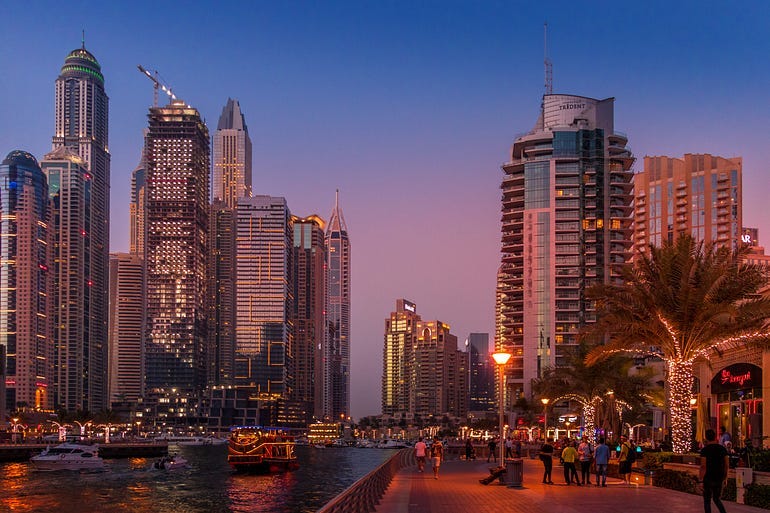Life Isn’t Always Cheaper When You Leave the City Behind to Live in Rural Areas
Good income, expensive rent.

I have a friend who left Lisbon to live in the countryside of Porto. He is still single. I don’t understand why he did it. Well, he doesn’t deal well with money and the pressure of rent in big cities.
Depending on where they live, people can save more or less money. This has not only to do with salaries in the region but, above all, with the cost of living.
Lisbon is an expensive place. And yet Portugal’s capital gains thousands of residents every year who want to build a new life. Why not? A one-bedroom apartment in Lisbon can cost a cool €4,200 — but you get a lot more for that, don’t you?
In and around metropolises, the cost of living sometimes rises much faster than salaries.
Yet in other regions, the picture is completely different, where an average citizen can save a few digits per year — while elsewhere, it seems completely impossible to save money.
Good Income, Expensive Rent
How much you earn also depends on where you live.
If you look closer, rather unpopular cities stand out where the highest average salaries are paid.
On the one hand, large corporations are still mainly located in the center. On average, they pay higher wages than small or medium-sized companies.
The big city does not necessarily mean that salaries are particularly high.
To answer which is the cheapest place to live you have to look at the cost of living. This includes rent, but also spending on groceries and clothes, mobility, and leisure activities.
Depending on where you live, life can be significantly more expensive or cheaper.
Life costs more in big cities in particular. Either way, one thing is certain: it can be financially worthwhile to flee the city for the countryside.
Rural Does Not Necessarily Mean Cheaper
But life is not always cheaper when you leave the metropolis behind.
The fact that life in the center of the country is more expensive than expected in some cases has to do mainly with the issue of mobility.
Those who live in rural areas often commute to work in the city center every day. Expenses for cars and gasoline would therefore be much more important.
For example: “By deciding to buy a property in the countryside, the buyer becomes dependent on the evolution of gasoline prices for life.
Another hypothesis is that there is less competition in rural areas and that restaurant or leisure operators, for example, are not at the mercy of price wars.
How much is left over for saving — or better still, investing — depends mainly on one factor: the cost of housing.
In big cities, rising rents have been a recurring issue for years and have long since become a political issue.
Rental prices are rising, especially in the well-known metropolises. In other regions, on the other hand, the exact opposite is happening: the cost of housing is falling — whether in a condominium or apartment building.
In some metropolitan areas, rents are rising much faster than wages.
According to a popular rule of thumb, rent should be no more than 30% of net income.
You don’t always have to move or flee the big city to improve financially. There is another way.
It is true that rental costs have a strong influence on what is left of the salary at the end of the year.
Many can save well over $4,000 a year because they earn better, shop less, or eat out less often.
The fact is: Besides rent, there are a few more adjustments you can make to improve your own financial situation. For example, by ending unnecessary contracts or saving more effectively.
Another possibility would be to work on the salary level — because employees have more influence on this than many people think.
Never again will today’s younger generations accumulate as much wealth as their parents or grandparents.
In fact, there is some evidence that wealth accumulation has become more difficult. Rising housing and living costs are one thing.
At the same time, though, wages are growing much more slowly today than in the 1960s or 1970s, when economic growth sometimes topped the 10% mark. Today, economic output is increasing by 1 to 2% a year.
Gone are the days when you just had to put your money in a time deposit account or put it in government bonds to get at least a few percent returns.
Because it is also true: today it is much easier and cheaper to invest in the global stock market.
In short, investing your money for returns of 6%, 7%, or more per year is much easier today than it was 50 years ago.
Earnings Are Not Important
When choosing where to live and where to work, you have to weigh things up: do I want to afford the rather expensive life in the old town, and am I willing to give up half my take-home pay for the floorboards in the old building?
Or am I more attracted to the quiet suburbs or even the countryside? What demands do I have on my job and my salary? What do I want to achieve one day? What about family planning?
Answering at least some of these questions can help you set your own financial goals.
Of course, one of them will manage to save much more over the year because his salary is double. What matters is whether he does it.
Because what’s important is not what’s in the paycheck but how the money is used.
This article is for informational purposes only. It should not be considered Financial or Legal Advice. Not all information will be accurate. Consult a financial professional before making any major financial decisions.

